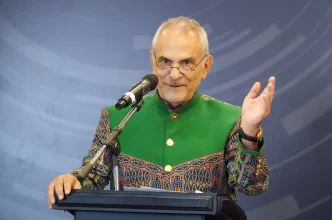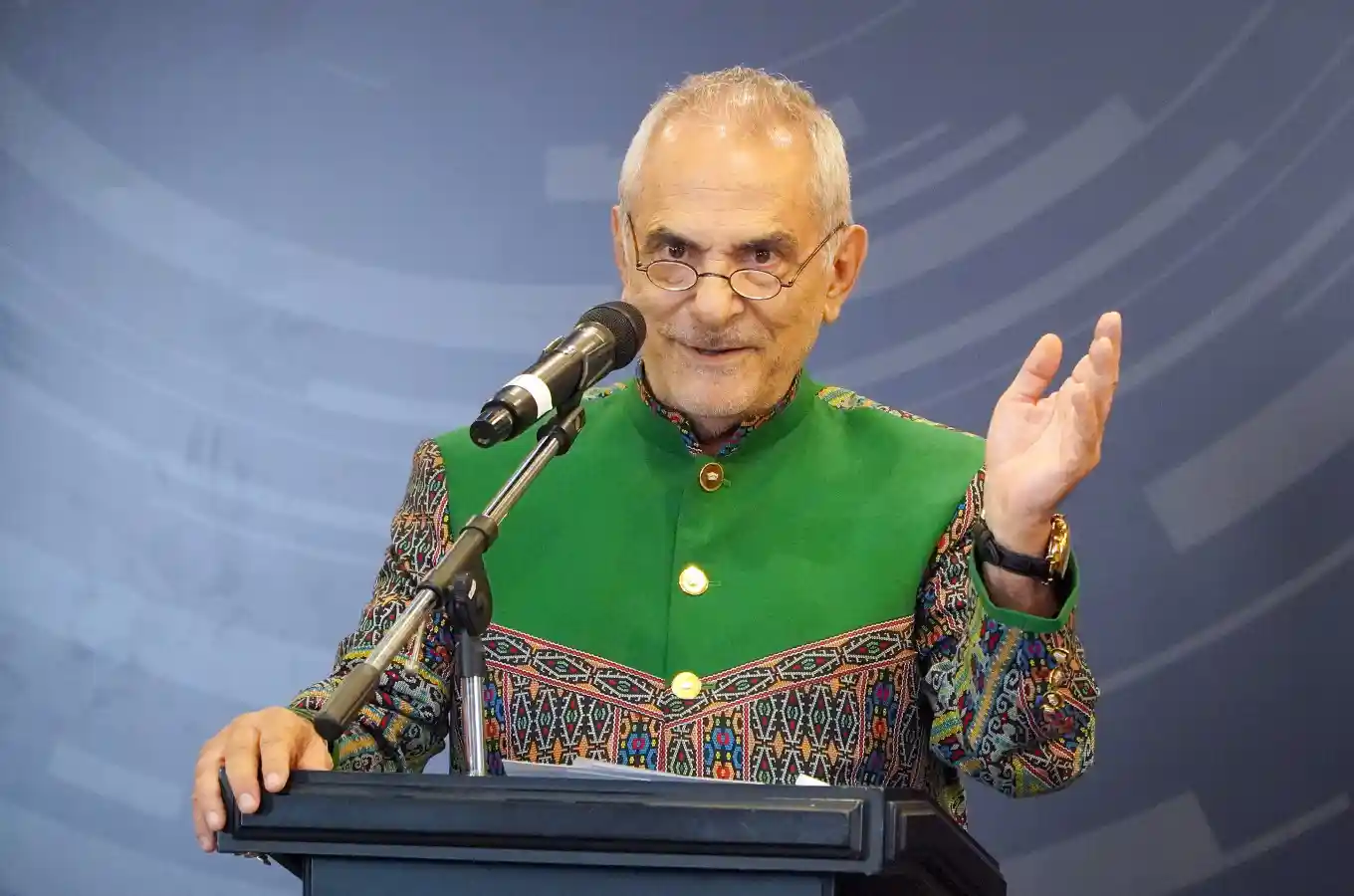Kuala Lumpur – Timor Leste’s journey toward full membership in the Association of Southeast Asian Nations (ASEAN) has reached a critical juncture, with Malaysian Foreign Minister Datuk Seri Mohamad Hasan urging the young nation to intensify efforts to meet the bloc’s stringent legal requirements. Speaking at a press conference following the 36th ASEAN Coordinating Council (ACC) meeting on May 25, 2025, Mohamad highlighted both the challenges and the collaborative steps being taken to integrate Timor Leste into the regional alliance.
Legal Hurdles on the Road to Membership
Timor Leste, which gained observer status at the ASEAN Summit in Phnom Penh, Cambodia, in 2022, faces the daunting task of complying with 66 remaining legal instruments to secure full membership. These instruments, which encompass a range of political, economic, and security agreements, are essential for aligning with ASEAN’s frameworks and ensuring seamless integration. “We want to help them, but they have to help themselves, too” said Mohamad, emphasizing the shared responsibility in this process.
The legal requirements are not merely procedural but reflect ASEAN’s commitment to maintaining a cohesive regional structure. For a nation like Timor Leste, which gained independence from Indonesia in 2002 after a tumultuous history, meeting these standards is a significant undertaking. The country must demonstrate capacity in areas such as trade regulations, human rights commitments, and security protocols—each governed by specific ASEAN treaties and charters.
Since receiving observer status, Timor Leste has actively participated in ASEAN meetings and capacity-building programs. However, full membership demands a deeper level of compliance, requiring robust domestic reforms and institutional strengthening. Analysts note that while Timor Leste has made strides in areas like governance and economic policy, gaps remain in legal and administrative frameworks, which could delay its accession if not addressed promptly.
Support Mechanisms and Regional Collaboration
Recognizing these challenges, ASEAN foreign ministers have agreed to establish a special task force dedicated to assisting Timor Leste. Additionally, a Timor Leste unit has already been set up at the ASEAN Secretariat in Jakarta to expedite compliance with the necessary legal instruments. “This is to expedite and assist Timor Leste in compliance with all legal instruments” said Mohamad, underscoring the bloc’s proactive approach.
One of the significant milestones in this journey is the adoption of the draft Addendum to the Treaty on the South-East Asia Nuclear-Weapon-Free Zone (SEANWFZ). This development marks a crucial step in integrating Timor Leste into ASEAN’s security framework, aligning it with the bloc’s commitment to regional peace and stability. Mohamad noted that member states will now undertake their respective domestic legal procedures to finalize Timor Leste’s accession, with hopes of completion by the 47th ASEAN Summit in October 2025.
This collaborative spirit reflects ASEAN’s broader theme for 2025—inclusivity and sustainability. Mohamad emphasized the importance of including Timor Leste, a nation geographically and culturally tied to the region, as a full member. “We must be inclusive, and Timor Leste, as a country in the region, should have been a full ASEAN member” he said, highlighting the moral and strategic imperative of integration.
A Flexible Timeline for Accession?
In a potentially groundbreaking move, ASEAN is exploring a proposal to grant Timor Leste full membership before it fully complies with all legal instruments, provided it meets the requirements within a stipulated timeline. “We are considering a suggestion to give them a timeline. For example, if they can fulfill the legal instruments within five years, then they can be a full member” said Mohamad. This flexible approach could accelerate Timor Leste’s integration while maintaining accountability, balancing the bloc’s rigorous standards with the need for inclusivity.
This proposal, if adopted, would represent a significant shift in ASEAN’s traditionally strict accession process. It acknowledges the unique circumstances of Timor Leste, a nation still rebuilding after decades of conflict and colonial rule. However, some member states may express caution, concerned that premature membership could set a precedent for future applicants or strain ASEAN’s operational cohesion. Discussions at the leaders’ level on May 26, 2025, following the ministerial meetings, are expected to provide clarity on this proposal.
Geopolitical and Economic Implications
Timor Leste’s potential membership carries broader implications for ASEAN’s geopolitical and economic landscape. As the bloc seeks to strengthen its role amid global uncertainties—ranging from South China Sea tensions to economic competition with major powers—expanding membership could enhance its collective influence. Timor Leste, though small with a population of approximately 1.3 million, offers strategic value due to its location at the crossroads of Southeast Asia and the Pacific, as well as its natural resources, including oil and gas reserves.
Economically, integration into ASEAN could provide Timor Leste with access to the bloc’s vast market and trade agreements, fostering growth in a country heavily reliant on petroleum revenues. However, it also poses challenges, as Timor Leste must align its economy with ASEAN’s competitive standards, including participation in initiatives like the ASEAN Economic Community (AEC). For ASEAN, supporting Timor Leste’s development aligns with its goal of reducing regional disparities, a key pillar of its sustainability agenda.
Geopolitically, Timor Leste’s inclusion could serve as a counterbalance to external influences in the region, particularly from powers seeking to expand their footprint in Southeast Asia. It also reinforces ASEAN’s commitment to sovereignty and self-determination, principles central to its charter. Yet, integrating a nation with limited institutional capacity risks straining ASEAN’s resources and decision-making processes, a concern that member states will likely weigh in upcoming summits.
Public and Regional Sentiment
Across Southeast Asia, reactions to Timor Leste’s prospective membership are largely positive, with many viewing it as a natural extension of ASEAN’s regional identity. In the Philippines, for instance, the Foreign Affairs Secretary has indicated that the country’s committee will back Timor Leste’s bid, signaling strong bilateral support. Public sentiment, as reflected in social media discussions, often frames Timor Leste’s inclusion as a historic correction, given its shared cultural and historical ties with neighboring nations like Indonesia.
However, there are voices of caution. Some analysts and commentators question whether Timor Leste’s readiness matches its enthusiasm, pointing to domestic challenges such as political instability and economic fragility. Others worry that accelerating membership without full compliance could undermine ASEAN’s credibility. These concerns, while not dominant, suggest that the road ahead will require careful navigation to maintain consensus among member states.
Historical Context and Future Prospects
Timor Leste’s journey to ASEAN membership must be understood within the context of its complex history. After centuries of Portuguese colonial rule and a brutal occupation by Indonesia from 1975 to 1999, the country emerged as an independent state in 2002 following a UN-administered referendum. Its path since then has been marked by efforts to build democratic institutions, stabilize its economy, and forge international partnerships. Joining ASEAN represents not just a regional alliance but a symbol of Timor Leste’s hard-won place on the global stage.
Looking ahead, the 47th ASEAN Summit in October 2025 looms as a pivotal moment. If Timor Leste can demonstrate significant progress on the legal instruments and secure agreement on a flexible timeline, it could mark the culmination of years of aspiration. For ASEAN, successfully integrating Timor Leste would reaffirm its commitment to unity and inclusivity, even as it grapples with internal and external challenges.
As discussions continue, the region watches closely. Timor Leste’s accession, if achieved, would not only expand ASEAN to 11 members but also send a powerful message about the bloc’s adaptability and vision for the future. For now, the focus remains on collaboration, compliance, and the shared goal of a more integrated Southeast Asia.
















